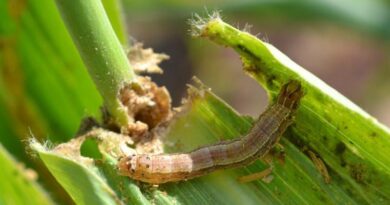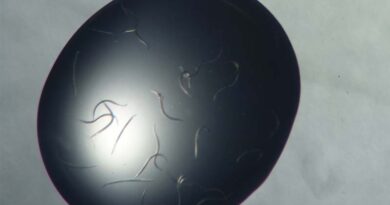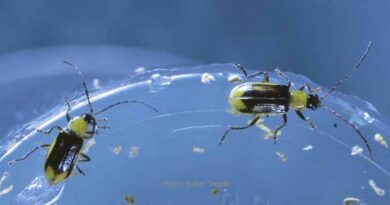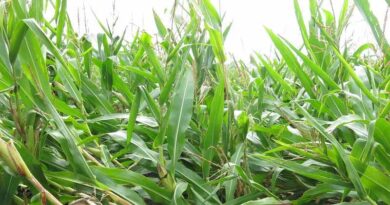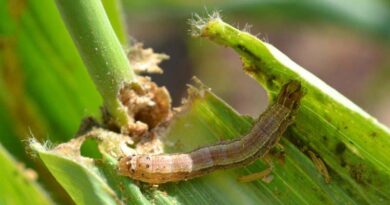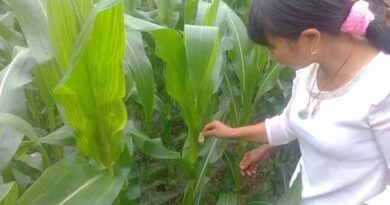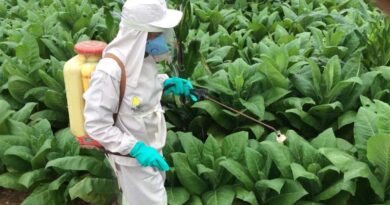PhD student wins international research award for fight against devastating fall armyworm pest
20 December 2022, Switzerland: A PhD student – co-supervised by scientists from University of Neuchâtel and CABI in Switzerland – has won an international research award for his investigations to use a natural enemy to tackle the devastating fall armyworm pest.
Patrick Fallet, who has been working under the guidance of Professor Ted Turlings and Professor Stefan Toepfer, won the Swiss Forum for International Agricultural Research (SFIAR) PhD Award 2022 for his research entitled “A novel nematode-based biological solution for farmers against the fall armyworm.”
The award was presented to Mr Fallet at an award ceremony and public discussion organized by SFIAR and hosted by ETH Zurich which focused on how smallholder farmers can increase their yields while using less or no chemical pesticides.
Specifically, the award ceremony celebrated Mr Fallet’s achievements so far and provided an opportunity to learn more and discuss the potential for entomopathogenic nematodes to protect plants against pests.
The fall armyworm is a significant pest of more than 80 crops but favours maize where it can cut yields by up to 60%. CABI research revealed that fall armyworm costs just 10 of Africa’s maize producing economies between $2.2bn to $5.5bn a year in lost harvests.
Mr Fallet’s research has seen him investigate if tiny insect-killing worms, called entomopathogenic nematodes, can be used as a safer-to-use and more sustainable effective way to control fall armyworm instead of chemical pesticides which are seen to be more harmful to farmers applying them as well as to the environment.
His research was, on one hand, conducted in the laboratories of the University of Neuchatel, and on the other hand under real maize farming conditions in Rwanda together with experts of the Rwanda Agriculture and Animal Resource Development Board (RAB), and CABI.
Professor Toepfer said, “Patrick developed novel gel formulations that successfully protect the beneficial nematode biocontrol agents from drought and sun – easing their application and success in controlling the larvae of the pest.
“If properly applied, those nematodes can be as effective as standard insecticides. Similarly, they may need to be applied several times during the maize growing season.
“This is particularly important in regions with overlapping fall armyworm populations that may repeatedly re-infest treated fields. For example, in Rwanda, maize is grown all year round, allowing for the endless multiplication of armyworms.”
Professor Turlings highlighted that Patrick’s research saw him lay the base for a viable biocontrol solution against the fall armyworm that could now be adopted by companies that manufacture biological control agents.
“This will help farmers in managing this devastating pest without harming themselves, their families, consumers and the environment,” he said. “Both myself and Professor Toepfer as co-supervisors of Patrick for his PhD research congratulate him for his research so far and this outstanding recognition of his achievement through the SFIAR Award.”
Patrick is currently completing his PhD at the University of Neuchâtel and also has been making use of CABI’s laboratories at its Swiss centre in Delémont as well as carrying out research in the field in Rwanda.
Dr Jean-Lambert Rurangwa (Advisor to DG, RAB) stated “We are pleased to express our utmost congratulations for this outstanding achievement.”
Mr Fallet said, “Caterpillars, such as the fall armyworm, are very susceptible to entomopathogenic nematodes, which allowed us to use much fewer nematodes than in the more conventional approaches targeting below-ground insects.
“This opens the possibility that farmers themselves, provided specific training, could produce sufficient numbers of nematodes on-farm to fight the fall armyworm, without relying on external sources.
“We hope that our very promising results will bring further interest in the use of entomopathogenic nematodes against above-ground pest insects.”
Also Read: South Dakota Farmer Wins Pivot Bio’s Ultimate Farm Truck
(For Latest Agriculture News & Updates, follow Krishak Jagat on Google News)


